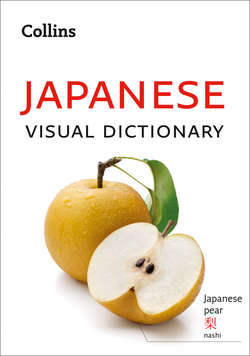Читать книгу Collins Japanese Visual Dictionary - Collins Dictionaries - Страница 9
FAMILY AND FRIENDS | 家族と友だち
ОглавлениеDifferent versions of words for family members are used depending on whether you are talking about your own family members (in-group) or someone else’s (out-group). In the list below, the terms before the slash are for your own family members, and those after it are honorific terms used to refer to someone else’s. Usage is changing, however: younger people today sometimes use the honorific terms to talk about their own family.
Mr/Mrs/Miss/Ms
…さん
…san
husband
夫/ご主人
otto/go-shujin
wife
妻/奥さん
tsuma/oku-san
boyfriend
ボーイフレンド
bōi furendo
girlfriend
ガールフレンド
gāru furendo
partner
パートナー
pātonā
fiancé/fiancée
フィアンセ
fianse
son
息子/息子さん
musuko/musuko-san
daughter
娘/娘さん
musume/museme-san
mother
母/お母さん
haha/okā-san
father
父/お父さん
chichi/otō-san
older brother
兄/お兄さん
ani/onii-san
younger brother
弟/弟さん
otōto/otōto-san
older sister
姉/お姉さん
ane/onē-san
younger sister
妹/妹さん
imōto/imōto-san
uncle
おじ/おじさん
oji/oji-san
aunt
おば/おばさん
oba/oba-san
nephew
甥/甥ごさん
oi/oigo-san
niece
姪/姪ごさん
mē/mēgo-san
cousin
いとこ
itoko
grandfather
祖父/おじいさん
sofu/ojii-san
grandmother
祖母/おばあさん
sobo/obā-san
grandson
孫(息子)/お孫さん
mago(musuko)/omago-san
granddaughter
孫娘/孫娘さん
magomusume/magomusume-san
stepfather
血の繋がらない父
chi no tsunagaranai chichi
in-laws
義理の親戚
giri no shinseki
mother-in-law
義母
gibo
father-in-law
義父
gifu
daughter-in-law
義理の娘/…娘さん
giri no musume/…musume-san
son-in-law
義理の息子/…息子さん
giri no musuko/…musuko-san
brother-in-law
義理の兄弟
giri no kyōdai
sister-in-law
義理の姉妹
giri no shimai
friend
友達
tomodachi
neighbour
近所の人
kinjo no hito
baby
赤ん坊/赤ちゃん
akanbō/akachan
child/children
子供/お子さん
kodomo/o-ko-san
teenager
ティーンエージャー
tiin’ējā
parents
両親/ご両親
ryōshin/go-ryōshin
siblings
兄弟/ご兄弟
kyōdai/go-kyōdai
This is/These are…
こちらは…です。
kochira wa … desu.
This is my husband.
こちらは夫です。
kochira wa otto desu.
YOU SHOULD KNOW…
When speaking to family members, the honorific terms are used, except for younger brother/sister, when name + さん san, or more familiarly ちゃん chan (for boys and girls) or 君 kun (for boys) are used.
